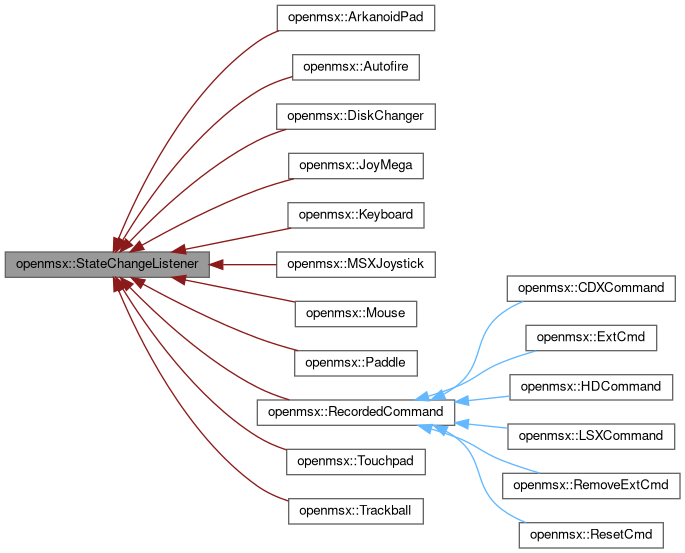#include <StateChangeListener.hh>
Definition at line 10 of file StateChangeListener.hh.
◆ StateChangeListener() [1/3]
◆ StateChangeListener() [2/3]
◆ StateChangeListener() [3/3]
| openmsx::StateChangeListener::StateChangeListener |
( |
| ) |
|
|
protecteddefault |
◆ ~StateChangeListener()
| openmsx::StateChangeListener::~StateChangeListener |
( |
| ) |
|
|
protecteddefault |
◆ operator=() [1/2]
◆ operator=() [2/2]
◆ signalStateChange()
| virtual void openmsx::StateChangeListener::signalStateChange |
( |
const StateChange & |
event | ) |
|
|
pure virtual |
This method gets called when a StateChange event occurs.
This can be either a replayed or a 'live' event, (though that shouldn't matter, it should be handled in exactly the same way). This might throw (e.g. on 'diska non-existing-file.dsk').
◆ stopReplay()
| virtual void openmsx::StateChangeListener::stopReplay |
( |
EmuTime::param |
time | ) |
|
|
pure virtualnoexcept |
This method gets called when we switch from replayed events to live events.
A input device should resync its state with the current host state. A replayer/recorder should switch from replay to record. Note that it's not possible to switch back to replay state (when the user triggers a replay, we always start from a snapshot, so we create 'fresh' objects).
The documentation for this class was generated from the following file:
